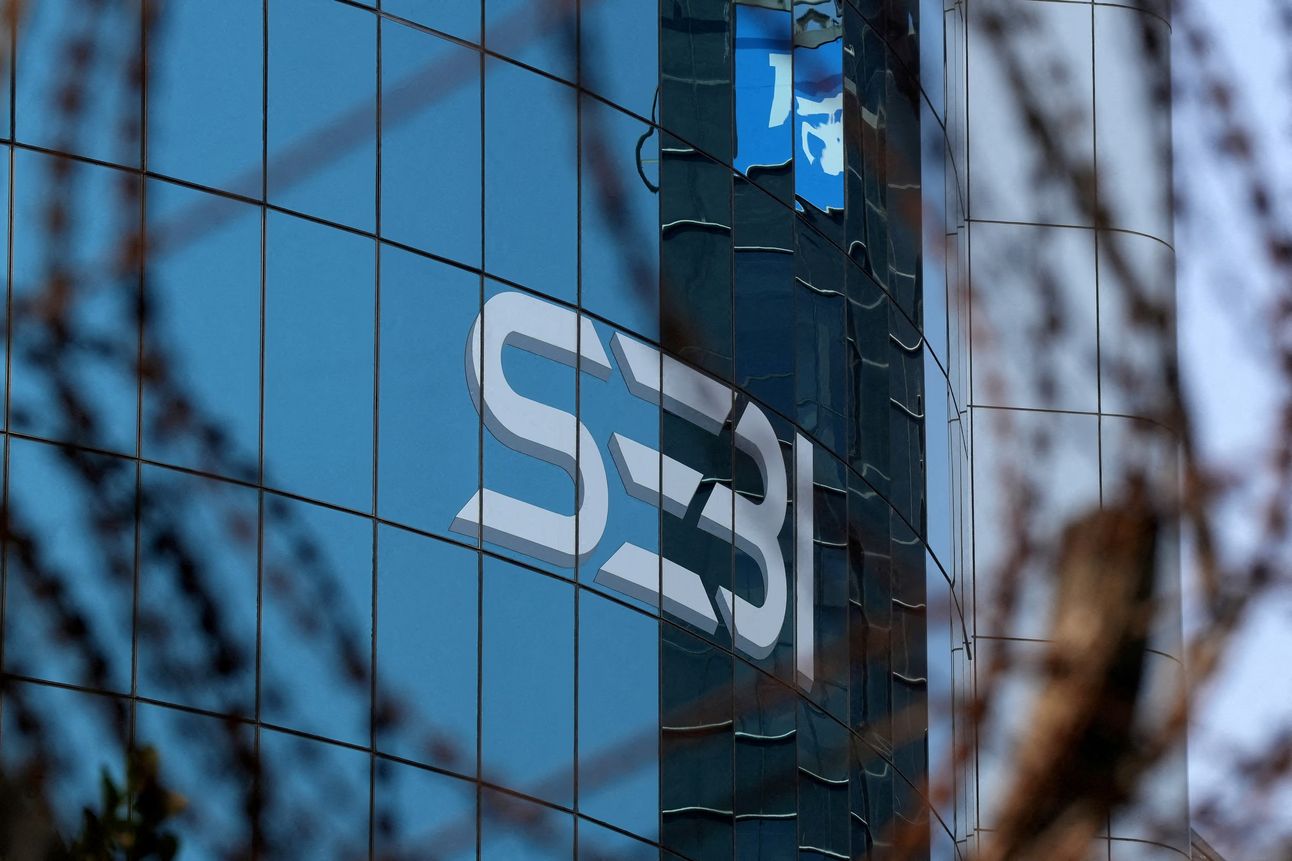

India’s retail inflation eased to 1.55 percent in July, opening the door for rate cuts. India’s state refiners lock in deals to hedge against Russian oil supply risk. SEBI is preparing to simplify rules for foreign portfolio investors.
If you have any questions about India, fill out this form or reach out to Shreyas at [email protected]



Macro
Indian bonds fell to a four-month low as fears of increased government borrowing to fund fiscal stimulus pushed 10-year yields to 6.48 percent, with forecasts of 6.6 percent by early 2026. Analysts warn supply pressures and weak demand could deepen losses.
India has sent its first diesel shipment to China since 2021, as sanctions disrupt exports from Rosneft-backed Nayara Energy. The cargo’s diversion follows EU restrictions, payment hurdles, and reduced output at Nayara’s Vadinar refinery.
Indian retail investors poured a record $4.9 billion (₹429.3 billion) into stock funds in July, offsetting $3 billion (₹262.8 billion) in foreign outflows and helping steady markets despite tariff worries. Strong domestic consumption trends and resilient corporate earnings are boosting sentiment.
India’s soyoil imports are set to jump 60 percent to a record in 2024/25 on cheaper prices versus palm oil, which will drop to a five-year low. The shift will boost global soyoil prices while pressuring Malaysian palm oil futures.
Equities
South Africa is in talks with ArcelorMittal South Africa to avert the closure of its Newcastle and Vereeniging steel mills, which risk 3,500 jobs. The firm blames scrap pricing, high energy costs, Chinese imports, and poor rail service.
Indian billionaire Bhavin Turakhia is partnering with GoDaddy to expand his AI-led email service Titan, aiming to grow from 2.3 million to over 10 million mailboxes in four years. Titan targets micro-businesses with plans starting at $2 (₹145) a month.
Mahindra & Mahindra will boost capacity at its Durban, South Africa plant by two-thirds to 1,500 vehicles a month, adding 100 jobs. The automaker sees tariffs on US exports as an opportunity to deepen India–South Africa trade ties.
Paytm’s Payment Services unit has received in-principle approval from the Reserve Bank of India to operate as an online payment aggregator, a year after applying and months after being ordered to shut its payments bank.
Nykaa’s quarterly profit more than doubled to $2.66 million (₹233.2 million) on strong beauty product demand and new brand tie-ups. The retailer sells global and local brands like Estee Lauder and Kay Beauty, both online and offline.
Apollo Hospitals will double its AI investments over the next two to three years after beating Q1 profit estimates on higher patient volumes. The company already uses AI for diagnostics, including X-ray analysis, scan interpretation, and endoscopy.
Alts
India approved a 700-megawatt, $929 million (₹81.4 billion) hydropower project in Arunachal Pradesh near the disputed China border. The Tato-II plant aims to boost local infrastructure and energy access, amid concerns over China’s massive upstream dam on the Yarlung Tsangpo River.
The Brent-Dubai EFS premium has narrowed to $0.60 from $3.90 (₹52.6-341.7) in late June as Indian refiners shift from Russian Urals to Middle Eastern and Atlantic Basin crude under US tariff pressure, opening new arbitrage opportunities for global suppliers.
Shapoorji Pallonji Group may use proceeds from a potential $1 billion (₹87.6 billion) Tata Sons stake sale to repay Goswami Infratech bonds maturing in April 2026, aiming to cut borrowing costs after issuing debt at a steep 19.75 percent yield in May.
India’s space regulator has chosen a Google-backed PixxelSpace-led consortium to build a home-grown earth observation satellite network, investing over $137 million (₹12 billion) in five years. Partners include Piersight Space, Satsure Analytics India, and Dhruva Space.
CapitaLand Investment will invest $2.19 billion (₹191.8 billion) in Mumbai and Pune commercial real estate by 2030 under an agreement with Maharashtra’s government. The move supports its plan to nearly double India assets under management by 2028.
India’s microfinance industry is seeking up to $2.2 billion (₹192.7 billion) in government credit guarantees covering 75 percent of bank loan defaults to spur lending. Loan growth has slowed, with outstanding credit down 16.7 percent year-on-year to 3.5 trillion rupees in July.
Policy
India and China plan to resume direct flights as early as next month, with Air India and IndiGo expected to restart services. The move comes amid efforts to improve political ties ahead of the late-August Shanghai Cooperation Organisation summit.
India’s market regulator has rejected Anil Ambani’s settlement plea over Yes Bank bond investments, which cost investors $208.6 million (₹18.28 billion), alleging they were tied to loans from the bank to other group companies. He now faces potential penalties exceeding $200 million (₹17.5 billion).
India’s central bank will now allow surplus balances in special rupee vostro accounts, used by foreign banks for trade settlements, to be fully invested in central government securities, enabling greater use of rupee holdings from international trade.

Looking for unbiased, fact-based news? Join 1440 today.
Join over 4 million Americans who start their day with 1440 – your daily digest for unbiased, fact-centric news. From politics to sports, we cover it all by analyzing over 100 sources. Our concise, 5-minute read lands in your inbox each morning at no cost. Experience news without the noise; let 1440 help you make up your own mind. Sign up now and invite your friends and family to be part of the informed.
Reach out to [email protected] to reach our audience and see your advertisement here.

1. India’s Inflation Falls to 8-Year Low, Opening Door for RBI Rate Cuts

India’s retail inflation eased to 1.55 percent in July, dropping below the Reserve Bank of India’s 2 percent-6 percent target range for the first time in eight years and strengthening the case for potential rate cuts if growth falters under the weight of new U.S. tariffs.
The slowdown was driven largely by a steep fall in food prices, which make up nearly half of the consumer price index. Above-normal monsoon rains boosted crop output, pushing vegetable prices down 20.7 percent year-on-year, the sharpest drop since January 2019. Core inflation, which excludes food and fuel, also softened to 4.22 percent from June’s 4.53 percent.
Economists say the RBI now has room to cut its repo rate by 25-50 basis points should the economy show signs of slowing in response to President Donald Trump’s decision to double tariffs on Indian goods to 50 percent. Citigroup estimates the tariff hike could shave up to 0.8 percentage points off annual GDP growth.
The central bank held rates steady at its August meeting, citing global uncertainty, but noted it would closely monitor trade tensions. Bond yields ticked higher after the data, with the benchmark 10-year yield at 6.48 percent.
While the RBI’s full-year inflation forecast stands at 3.1 percent, analysts expect both growth and inflation to undershoot, raising the odds of a rate cut as early as October if tariff-related pressures deepen.
2. Indian State Refiners Lock in Term Deals to Hedge Russian Supply Risk

India’s state-owned refiners will lean on annual term contracts with diverse suppliers to safeguard energy security as uncertainty grows over the future of discounted Russian oil, the oil ministry told parliament on Tuesday.
The ministry said refiners are maintaining contracts with suppliers from multiple regions to hedge against market volatility and geopolitical disruptions. While India has become the largest buyer of Russian seaborne crude, accounting for more than one-third of its oil imports, officials cautioned that elevated Russian shipments “may not last forever.”
The shift comes amid narrowing discounts on Russian barrels and rising political risk after U.S. President Donald Trump imposed a 25 percent tariff on Indian goods last month and threatened further penalties over New Delhi’s purchases from Moscow.
State refiners, which make up over 60 percent of India’s 5.2 million barrels per day refining capacity, have paused spot purchases of Russian crude pending government guidance, while private refiners Reliance Industries, Nayara Energy, and HPCL-Mittal Energy continue buying.
By keeping term deals with Middle Eastern and other suppliers, the ministry said refiners can ensure both stable supply and “procurement of crude oil at optimal value,” taking into account international politics, trade relations, and price dynamics.
Trump is scheduled to meet Russian President Vladimir Putin in Alaska on Friday, as part of efforts to broker a Ukraine peace deal, a development that could reshape the global oil trade and India’s procurement strategy.
3. SEBI to Further Ease Regulations for Foreign Investors

India’s market regulator is preparing another round of simplified rules for foreign portfolio investors (FPIs) to encourage sustained capital inflows, according to the SEBI annual report released Tuesday.
The measures build on last week’s proposal for single-window clearance for low-risk overseas investors, including sovereign wealth funds, government-backed entities, and pooled retail vehicles, giving them streamlined access to Indian markets. SEBI says the changes could significantly boost participation from foreign institutions seeking long-term exposure.
The regulator is also launching a full review of its rulebook, aiming to prune outdated provisions and reduce compliance burdens. This includes rationalizing disclosure norms and easing shareholder approval requirements for low-value related-party transactions.
SEBI’s modernization push extends to cybersecurity upgrades and more sophisticated market surveillance, particularly after it banned U.S.-based Jane Street for alleged manipulation of stock indexes. The crackdown comes as regulators grow wary of the surge in expiry-day index options trading, where premiums are minimal but volumes spike sharply, with 90 percent of trades happening on expiry and nearly a third in the final hour.
By simplifying access while tightening oversight on speculative excesses, SEBI is signaling that it wants more patient, stable foreign capital, even as it reins in behaviors that could distort India’s rapidly growing derivatives market.
How would you rate today's newsletter?
See you tomorrow.
Written by Eshaan Chanda & Yash Tibrewal. Edited by Shreyas Sinha.
Sponsor the next newsletter to reach tens of thousands of U.S.-based business-savvy professionals. Reach out to [email protected].
Could your business use expert insights to power growth in India? Reach out to [email protected] for a free introductory call.
Disclaimer: This is not financial advice or recommendation for any investment. The Content is for informational purposes only, you should not construe any such information or other material as legal, tax, investment, financial, or other advice.

